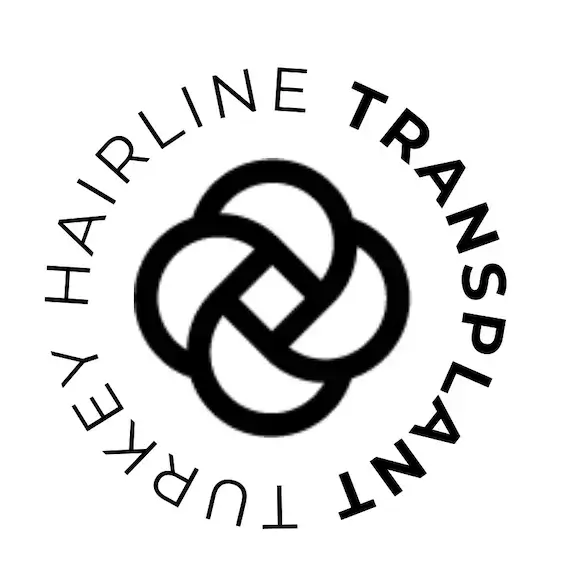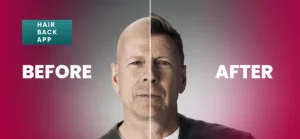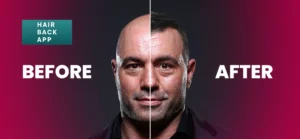Vegan hair transplants represent a growing demand for cruelty-free and environmentally conscious cosmetic procedures. As more people adopt vegan lifestyles and seek sustainable alternatives in every aspect of their lives, including personal care, the hair restoration industry is evolving to meet these needs.
While traditional hair transplants may involve animal-derived products or medications, vegan hair transplants ensure that every part of the process, from anesthesia to aftercare, aligns with ethical and eco-friendly standards.
Welcome to our guide on hair transplant. My name is Emma Wright, your resident hair restoration specialist. Today, we’ll be discussing Vegan hair transplants, the availability, effectiveness, and future of sustainable vegan hair transplant solutions.
The Procedure: How Does It Differ?
The fundamental techniques behind hair transplantation, such as Follicular Unit Extraction (FUE) or Follicular Unit Transplantation (FUT), remain the same in vegan hair transplants. The major difference lies in the substances used during and after the procedure. For example:
- Anesthesia and Medications: Vegan alternatives to common anesthetics and medications may be used. While standard options might contain animal-derived ingredients or be tested on animals, vegan-friendly versions can provide the same effectiveness without compromising ethical values.
- Post-Operative Care: Many of the creams, gels, and supplements typically recommended after hair transplant surgery could contain animal-based ingredients such as collagen, gelatin, or lanolin. In vegan hair transplants, these products are replaced with plant-based alternatives, ensuring that the healing process supports a cruelty-free approach.
While the core process remains unchanged, the shift towards vegan materials ensures that every aspect of the procedure respects a plant-based, sustainable ethos.
Understanding Vegan Hair Transplants
Vegan hair transplants are designed to align with the ethical and environmental values of those who avoid animal-derived products. Traditionally, hair transplants do not involve the use of animal products or by-products in the procedure itself, but some of the substances used before, during, and after the surgery might not always be vegan-friendly.
This includes certain medications, anesthetics, and post-operative care products, which may contain ingredients derived from animals or be tested on animals. Vegan hair transplants aim to eliminate these concerns by using plant-based, cruelty-free alternatives.
For those who want to ensure that their procedure aligns with their ethical stance, choosing a clinic that explicitly offers vegan hair transplants is essential. Many clinics are beginning to adopt vegan-friendly methods in their hair transplant procedures, ensuring that no animal-derived ingredients are used at any stage.
Are Vegan Hair Transplants Effective?
One of the main concerns potential patients have about vegan hair transplants is whether the use of plant-based and cruelty-free alternatives affects the effectiveness of the procedure. The good news is that the change in materials does not impact the success rate of the transplant. The outcome is primarily determined by the skill of the surgeon, the patient’s health, and how well post-operative care is followed.
Factors such as diet and hair transplant success can also play a role, as proper nutrition supports healthy hair growth. The influence of environmental factors on hair health further emphasizes the importance of a holistic approach when seeking long-lasting results. Choosing plant-based post-care products and a nutrient-rich diet that aligns with your lifestyle can help enhance the outcomes of vegan hair transplants.
Vegan hair transplants deliver results comparable to standard procedures, and in some cases, the use of natural, plant-based products can even enhance recovery. Some people may respond better to vegan post-operative products, especially if they have sensitivities to traditional, animal-derived ingredients.

The Rise of Sustainability in Hair Transplants
As more individuals become conscious of their carbon footprint and the environmental impact of their lifestyle choices, sustainability is now a critical factor in cosmetic procedures, including hair transplants. Vegan hair transplants are one answer to this growing demand for eco-conscious solutions.
Sustainability in this context goes beyond the use of vegan products. Clinics offering vegan hair transplants are also exploring ways to reduce waste, use renewable energy, and limit their environmental impact. This could involve using biodegradable materials in packaging, avoiding single-use plastics, or choosing organic, ethically sourced ingredients for post-operative care.
The influence of celebrity hair transplant trends has also helped raise awareness about sustainable and ethical hair restoration methods. As more public figures opt for vegan and eco-friendly procedures, it sets a positive example for others considering hair transplants, further promoting the benefits of sustainable choices.
Finding a Clinic That Offers Vegan Hair Transplants
As the interest in vegan hair transplants grows, more clinics worldwide are beginning to offer these services. However, not all clinics that perform hair transplants have made the switch to vegan alternatives. Therefore, it is essential to do thorough research when seeking out a clinic that aligns with your values.
Here are a few tips for finding a clinic that offers vegan hair transplants:
- Ask About Ingredients: When consulting with a hair transplant specialist, inquire about the specific products used during the procedure and post-operative care. Ensure that no animal-derived ingredients or by-products are involved.
- Look for Certifications: Some clinics may be certified by organizations that promote vegan or cruelty-free practices. These certifications can offer peace of mind that the clinic is adhering to vegan-friendly standards.
- Read Reviews and Testimonials: Look for reviews or testimonials from previous patients who have undergone vegan hair transplants. This can provide valuable insights into the effectiveness of the procedure and the quality of the clinic’s services.
Legal and Ethical Considerations
In addition to sustainability and veganism, it’s essential to consider the legal and ethical implications of hair transplants. Hair transplant legal and ethical issues often involve ensuring that procedures are conducted with informed consent, transparency about potential risks, and respect for patient rights. Clinics offering vegan hair transplants should also be held to these ethical standards, ensuring that their practices align with broader vegan values.
Ethical concerns may also extend to the sourcing of any materials used in the transplant process, such as whether they are derived from sustainable and cruelty-free sources. Patients should feel confident that their procedure adheres to both ethical and legal standards, reflecting a commitment to responsible and humane medical practices.
The Future of Vegan Hair Transplants
The future looks promising for vegan hair transplants. As awareness of veganism and sustainability continues to grow, we can expect more clinics to adopt vegan-friendly practices. Innovations in plant-based medicine and cruelty-free alternatives to animal-derived substances are making it easier for medical professionals to offer ethical cosmetic procedures.
Moreover, the continued development of regenerative medicine, stem cell research, and biotechnology could eventually lead to even more advanced, sustainable options for hair restoration. These advancements may include the ability to regrow hair using plant-based or lab-grown cells, further reducing the environmental and ethical impact of hair transplants.
The Role of Awareness
One of the key challenges in the adoption of vegan hair transplants is awareness. Many people may not even realize that animal-derived ingredients could be used in traditional hair transplant procedures. As more patients seek cruelty-free solutions, it’s likely that awareness will grow, leading to increased demand for vegan alternatives.
For those who are already aware, vegan hair transplants provide a way to make an ethical choice without compromising on results. By choosing a vegan procedure, patients can feel confident that their decision is in line with their values while still achieving the hair restoration they desire.
Conclusion
Vegan hair transplants offer a sustainable and ethical solution for those who care about the environment and animal welfare. The procedure maintains the same level of effectiveness as traditional hair transplants while eliminating the use of animal-derived ingredients and by-products.
With the rise in demand for plant-based and cruelty-free alternatives, more clinics are likely to adopt these practices, providing broader access to vegan hair transplants.
As the cosmetic industry continues to evolve toward more sustainable practices, vegan hair transplants are poised to become a popular choice for individuals seeking both personal enhancement and environmental responsibility.
Whether you’re motivated by ethical concerns, environmental sustainability, or simply a desire for healthier, plant-based post-operative care, vegan hair transplants offer an exciting new frontier in hair restoration.














